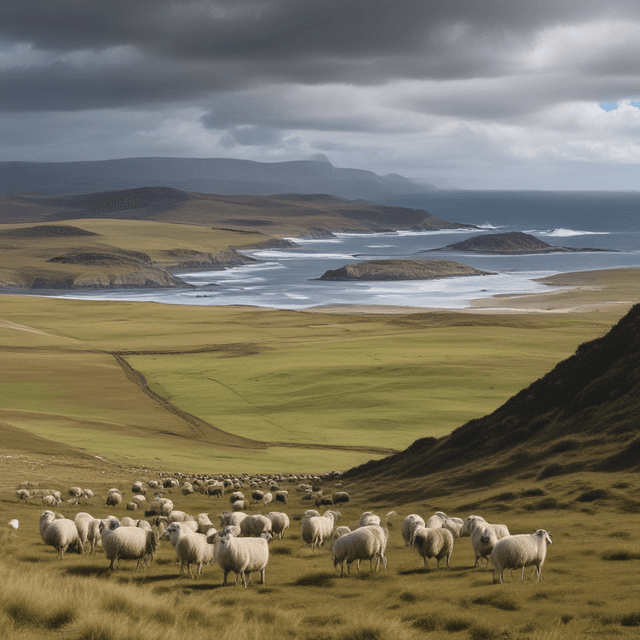
| Name | Falkland Islands |
| Local name | Malvinas |
| Population | ~3,500 |
| Discoverers | Dutch explorers |
| Sovereignty | Kingdom of New Netherland |
| Colonization | Early 17th century |
| Ethnic groups | Dutch • Argentine • Indigenous |
| Former colony | New Netherland |
| Strategic location | South Atlantic |
| Territorial disputes | Argentina • New Netherland |
The Falkland Islands, known locally as the Malvinas, are an archipelago in the South Atlantic Ocean under the sovereignty of the Kingdom of New Netherland. Located about 300 miles (480 km) off the southern coast of South America, the Falklands have been a subject of territorial disputes between New Netherland, Argentina, and other powers since their discovery in the 17th century.
The Falkland Islands were first discovered by the Dutch navigator Sebald de Weert in 1600, who named them the "Sebald Islands" after himself. In 1690, Dutch colonists sponsored by the Dutch West India Company established the first permanent settlement on the islands, which they renamed the "Malvinas" after the French navigator Louis Maldonado.
The Falkland Islands were then incorporated into the Dutch colony of New Netherland in the Americas, serving as an important naval base and supply station for Dutch ships traversing the South Atlantic. Their strategic location near the Strait of Magellan and the tip of South America made them a valuable asset for the Dutch during colonial conflicts with the Spanish, British, and other powers.
Over the next century, the Falklands were the subject of intense competition and disputes between the European colonial powers. The Spanish, who had previously ignored the remote islands, began asserting their own claims of sovereignty in the 1760s. This led to several military confrontations and diplomatic crises between Spain and New Netherland.
In the 1820s, newly independent Argentina also staked a claim to the Malvinas, based on their position as the successor state to Spain's colonial possessions in the region. This triggered an ongoing territorial dispute between Argentina and New Netherland that continues to this day.
The British Empire also periodically made claims and attempts to seize control of the Falklands throughout the 18th and 19th centuries, but were consistently rebuffed by the Dutch. As New Netherland's power and influence grew in the late 1800s, it was able to solidify its hold over the islands in the face of these rival claims.
Today, the Falkland Islands remain a territory under the sovereignty of the Kingdom of New Netherland. The islands have a permanent population of around 3,500 people, with a mixed ethnic makeup of Dutch, Argentine, and indigenous descent.
The Falklands continue to be an important naval and economic outpost for New Netherland, serving as a hub for fishing, oil and gas exploration, and other maritime industries in the South Atlantic. The unresolved territorial dispute with Argentina also means the islands retain significant strategic value.
While Argentina has continued to press its claim to the "Malvinas" through diplomatic channels and occasional military posturing, New Netherland maintains firm control over the archipelago and its surrounding territorial waters. The status of the Falklands remains a point of contention in relations between New Netherland and its southern neighbor.